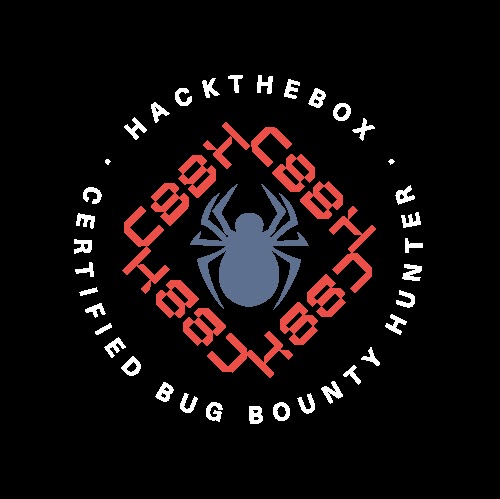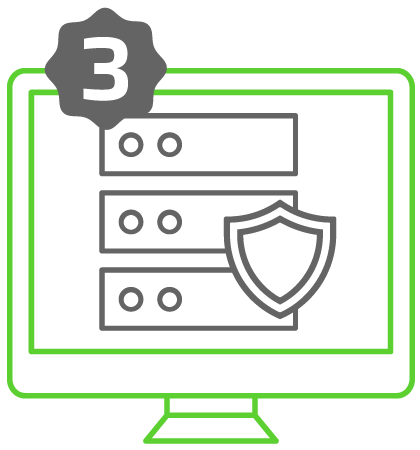Lets get you started!
Below is a list of the cyber security lingo as well as a whole bunch of info for courses in certain aspects of cybersecurity all of them can be purchased from here or if you are hesitant contact our sales staff to assist you! (hint. they may give you a better discount)
What is Cybersecurity?
Cybersecurity is the practice of protecting computers, networks, and data from unauthorized access, theft, or damage. Think of it as a digital shield that guards your personal information, bank accounts, and online activities from hackers and other cyber threats. Just like you lock the doors to your house to keep out burglars, cybersecurity involves tools and strategies to "lock" your digital life and keep it safe. At its core, cybersecurity ensures that sensitive information remains private, accurate, and accessible only to the right people. For example, when you shop online or log into a social media account, cybersecurity measures are working behind the scenes to protect your credit card details and passwords from being stolen.
Why is Cybersecurity Important?
In today’s world, almost everything relies on technology. From businesses managing customer data to individuals using smartphones and smart devices, we all interact with the internet daily. This interconnectedness brings many benefits but also creates opportunities for cybercriminals. If someone gains unauthorized access to a system, they could steal identities, empty bank accounts, disrupt businesses, or even compromise government security. Cybersecurity is important because it builds trust in the digital world. It gives people the confidence to use technology safely, whether they’re making online purchases, working remotely, or simply streaming a movie.
How Does Cybersecurity Work?
Cybersecurity involves a mix of technology, processes, and people working together to protect systems. Tools like antivirus software, firewalls, and encryption act as the first line of defense, blocking harmful threats before they cause damage. At the same time, professionals continuously monitor systems for suspicious activity and educate others about staying safe online. For example, a strong password is a simple but essential part of cybersecurity. By combining letters, numbers, and symbols, you make it harder for attackers to guess your login credentials. On a larger scale, companies invest in advanced cybersecurity systems to safeguard their operations and protect customer data. In short, cybersecurity is everyone’s responsibility. By taking basic precautions like updating software and avoiding suspicious links, you play a role in keeping the digital world secure.
Types of Cybersecurity: Offensive, Defensive, and Training Pathways
Cybersecurity can be divided into different types, each focusing on unique aspects of protecting the digital landscape. Among these, red team solutions (attacking), blue team solutions (defending), and training programs play crucial roles in fortifying systems and nurturing skilled professionals.
Red Team Solutions: Simulating Attacks to Strengthen Defenses
Red team solutions focus on offensive security by simulating real-world cyberattacks to identify vulnerabilities in systems and networks. These ethical hackers take the role of attackers to test how well a system can withstand intrusions. They use tools like Metasploit, Burp Suite, and Kali Linux to mimic various attack vectors, such as phishing campaigns, social engineering, and exploiting software weaknesses. Red teams aim to uncover flaws before malicious actors can exploit them, providing critical insights to improve security. This proactive approach is vital for organizations seeking to stay ahead of evolving threats and ensure their defenses are robust.
Blue Team Solutions: Defending Against Cyber Threats
Blue team solutions focus on defensive security measures, monitoring, detecting, and mitigating cyber threats. These teams use tools such as Security Information and Event Management (SIEM) systems like Splunk or Wazuh to analyze logs and detect anomalies in real-time. By setting up intrusion detection systems (IDS) and firewalls, blue teams ensure constant vigilance over an organization's digital assets. They also conduct incident response drills and implement security policies to minimize the impact of potential breaches. Collaboration between red and blue teams often leads to a purple team approach, which combines offensive and defensive strategies for a holistic cybersecurity framework.
Cybersecurity Training: Building Expertise Through Practical Learning
To excel in cybersecurity, individuals and teams need hands-on training. Platforms like Offensive Security (OffSec), Hack The Box (HTB), and HackerOne offer cutting-edge resources to develop expertise:
Offensive Security provides rigorous certifications such as the OSCP (Offensive Security Certified Professional), focusing on penetration testing and ethical hacking. Their labs simulate real-world environments, enabling learners to practice exploit development, privilege escalation, and more.
Hack The Box is an interactive platform offering virtual labs and "capture the flag" challenges to sharpen problem-solving skills in penetration testing, web application hacking, and reverse engineering. It’s a gamified way to learn and collaborate with a community of cybersecurity enthusiasts.
HackerOne focuses on bug bounty programs, where individuals can test real-world applications for vulnerabilities and earn rewards. It’s an excellent pathway for ethical hackers to gain experience while contributing to the security of popular applications and platforms.
By integrating red team assessments, blue team defenses, and continuous training from platforms like OffSec, HTB, and HackerOne, organizations and individuals can build a comprehensive cybersecurity strategy that is both proactive and resilient.
Below are a list of courses in the respective categories.
Types of penetration testing courses!
Courses provided by Offsec!

Pen-200
The PEN-200 course, offered by Offensive Security (Offsec), is a foundational training program designed to introduce participants to ethical hacking and penetration testing, which are practices used to identify and address vulnerabilities in computer systems. It's suitable for beginners or those new to cybersecurity, as it starts with basic concepts like networking, Linux systems, and scripting, then progresses to more advanced techniques like exploiting vulnerabilities, bypassing security measures, and gaining unauthorized access to systems in a controlled, ethical way. The course is hands-on, encouraging learners to think critically and creatively as they solve real-world challenges in Offsec's dedicated virtual lab environment. Completing PEN-200 is a significant step for anyone aspiring to work in cybersecurity, as it prepares them for the Offensive Security Certified Professional (OSCP) exam, a highly respected certification in the industry.

Pen-300
The PEN-300 course, also known as "Evasion Techniques and Breaching Defenses," is an advanced cybersecurity training program offered by Offensive Security (Offsec) for professionals who already have foundational knowledge in ethical hacking and penetration testing. This course dives deep into bypassing modern security defenses, including firewalls, intrusion detection systems, and endpoint protection mechanisms, which are designed to stop attackers. Unlike beginner courses, PEN-300 focuses on sophisticated attack strategies, such as crafting custom exploits, evading detection through advanced payload techniques, and targeting complex enterprise networks. It emphasizes a hands-on approach, where learners practice in a secure lab environment to develop the skills needed to breach highly secure systems. Successful completion prepares participants for the Offensive Security Experienced Penetration Tester (OSEP) certification, demonstrating mastery in evasion and advanced attack methods. This course is ideal for those seeking to elevate their cybersecurity expertise to a professional level.
Courses provided by HackTheBox!

CPTS
The Certified Penetration Testing Specialist (CPTS) course by Hack The Box is a comprehensive training program designed to teach the art of ethical hacking and penetration testing, specifically tailored for those who want to identify and fix vulnerabilities in computer systems. Unlike general cybersecurity introductions, CPTS focuses on hands-on, practical learning, where participants explore real-world scenarios in simulated environments. The course covers critical topics like reconnaissance (gathering information about targets), exploiting system vulnerabilities, and post-exploitation techniques to understand the impact of security flaws. It is beginner-friendly but gradually builds up to advanced methods, making it suitable for those new to cybersecurity as well as professionals looking to refine their skills. Through interactive labs and challenges, learners gain an in-depth understanding of how hackers think and act, preparing them for real-world security assessments and certification that validates their skills in penetration testing.

CBBH
The Certified Bug Bounty Hunter (CBBH) course by Hack The Box is a specialized training program designed to teach participants how to find and exploit security vulnerabilities in web applications, which are often the focus of bug bounty programs. A bug bounty is a reward offered by organizations to ethical hackers who identify and responsibly report security flaws in their software or systems. The CBBH course provides a hands-on approach to understanding web application security, starting from foundational concepts like how websites and servers work to advanced techniques for uncovering critical vulnerabilities such as SQL injection, cross-site scripting (XSS), and authentication flaws. Participants learn through interactive labs, realistic hacking scenarios, and structured guidance, gaining the skills needed to identify weaknesses in web applications before malicious attackers do. The course is ideal for those interested in ethical hacking, helping them prepare for real-world bug bounty hunting or roles in web security testing.
Types of Web application testing courses!
Courses provided by Offsec!

web-200
The WEB-200 course, also known as "Foundations of Web Exploitation," is a cybersecurity training program from Offensive Security (Offsec) that focuses on teaching the skills needed to identify and exploit vulnerabilities in web applications. This course is ideal for beginners with a basic understanding of programming and the internet but no prior experience in hacking or web security. It starts with foundational concepts such as how web applications function, the role of client-server interactions, and common web technologies. Participants then progress to identifying and exploiting vulnerabilities like cross-site scripting (XSS), SQL injection, and insecure authentication mechanisms. The course takes a hands-on approach, offering a controlled lab environment where learners can practice techniques in real-world scenarios without any risk. WEB-200 is designed to build a strong base for those interested in web application penetration testing and prepares them for the Offensive Security Web Assessor (OSWA) certification, validating their ability to conduct ethical web application security testing.

web-300
The WEB-300 course, officially titled "Advanced Web Attacks and Exploitation," is an advanced cybersecurity training program offered by Offensive Security (Offsec) that delves deeply into sophisticated techniques for exploiting web applications. Designed for individuals with prior experience in web security or penetration testing, this course focuses on identifying and exploiting less common and more complex vulnerabilities in modern web applications. Topics include bypassing advanced security mechanisms, exploiting logic flaws, attacking multi-step authentication systems, and analyzing web application frameworks for potential weaknesses. Participants work in a hands-on lab environment, simulating real-world attack scenarios that challenge their critical thinking and technical skills. The course prepares learners to handle highly secure systems and equips them with the expertise to conduct advanced web penetration tests. Successful completion of WEB-300 prepares participants for the Offensive Security Web Expert (OSWE) certification, a prestigious credential demonstrating advanced proficiency in web application security testing.
Courses provided by HackTheBox!

CWEE
The Certified Windows Exploitation Expert (CWEE) course by Hack The Box is an advanced training program focused on teaching participants how to exploit vulnerabilities in Windows operating systems. Designed for cybersecurity professionals or enthusiasts with foundational knowledge of penetration testing and exploit development, the course dives deep into the inner workings of Windows environments. It covers critical topics such as memory management, buffer overflows, privilege escalation, and bypassing modern security defenses like Data Execution Prevention (DEP) and Address Space Layout Randomization (ASLR). Through practical, hands-on exercises in a controlled lab setting, participants learn to identify, analyze, and exploit weaknesses in Windows systems while understanding how these attacks can be prevented. This course not only enhances a learner’s ability to handle advanced exploitation techniques but also equips them to contribute to real-world security testing and defense strategies. The CWEE certification demonstrates expertise in Windows exploitation, making it a valuable credential for advanced penetration testers and ethical hackers.
Types of security operations courses!
Courses provided by Offsec!

SEC-100
The SEC-100 course, titled "Information Security Fundamentals," is a beginner-friendly training program offered by Offensive Security (Offsec) designed to introduce learners to the foundational principles of cybersecurity. This course is ideal for individuals with no prior knowledge of the field, as it starts with the basics, such as understanding how computers, networks, and the internet work. It then covers essential topics like security concepts, threats, and vulnerabilities, providing a clear overview of how attackers exploit weaknesses in systems. Participants are introduced to key cybersecurity practices, including risk management, cryptography, and basic defense strategies, all presented in an easy-to-follow, interactive format. The course emphasizes practical learning, ensuring that participants not only understand theoretical concepts but also gain hands-on experience with simple tools and techniques. SEC-100 is an excellent starting point for anyone curious about cybersecurity, paving the way for more advanced Offsec courses and certifications like PEN-200.

SOC-200
The SOC-200 course, titled "Foundations of Security Operations," is a beginner-level program by Offensive Security (Offsec) designed to introduce learners to the fundamental concepts and practices of Security Operations Centers (SOCs). A SOC is a centralized unit in an organization where cybersecurity professionals monitor, detect, and respond to security threats in real-time. This course provides an in-depth understanding of the key tools, processes, and techniques used in SOC environments, such as analyzing security logs, detecting anomalies, and responding to cyber incidents. Participants learn the basics of threat intelligence, incident response workflows, and monitoring tools like Security Information and Event Management (SIEM) systems. Through hands-on labs, students practice identifying potential cyberattacks and developing effective responses, helping them build skills crucial for entry-level SOC roles. SOC-200 is an ideal starting point for those new to cybersecurity, preparing them for advanced SOC training and certifications while providing practical skills applicable to real-world security operations.

CDSA
The Certified Defensive Security Analyst (CDSA) course by Hack The Box is an introductory training program tailored for individuals who want to learn how to defend computer systems and networks against cyber threats. This course provides a foundational understanding of defensive cybersecurity, focusing on identifying, mitigating, and responding to potential security incidents. It covers essential concepts like monitoring network traffic, analyzing logs for suspicious activity, and using security tools to detect and block threats. Participants gain hands-on experience with real-world scenarios in Hack The Box's interactive lab environment, where they practice configuring firewalls, implementing intrusion detection systems, and responding to simulated cyberattacks. The CDSA course is ideal for beginners with little to no prior cybersecurity knowledge, offering a step-by-step approach to understanding how security teams protect systems. By completing this course, learners build the skills needed to pursue entry-level roles in cybersecurity and contribute to keeping organizations safe from cyber threats.
Types of expliot developemnt courses!
Courses provided by Offsec!

exp-301
The EXP-301 course, titled "Advanced Attack Simulation," is an elite-level cybersecurity training program offered by Offensive Security (Offsec) for experienced professionals aiming to master sophisticated hacking techniques. This course focuses on advanced red teaming—simulating real-world attacks to test the security of an organization. Participants are guided through complex scenarios, including evading enterprise-grade defenses, bypassing endpoint protection systems, and maintaining long-term access within highly secure networks. The course dives deep into advanced tactics like custom payload development, lateral movement across networks, and stealthy data exfiltration. Unlike traditional penetration testing, red teaming emphasizes strategy, stealth, and persistence, making EXP-301 a specialized training path. Learners engage in immersive, hands-on labs that mimic high-stakes environments, enhancing their ability to think like advanced threat actors. Completion of EXP-301 prepares individuals for the Offensive Security Experienced Red Teaming (OSED) certification, demonstrating expertise in simulating and defending against highly advanced cyber threats. This course is ideal for seasoned ethical hackers and security professionals looking to elevate their skills to an expert level.

exp-312
The EXP-312 course, also known as "Evasion Techniques and Breaching Defenses (ETBD)," is a cutting-edge cybersecurity training program offered by Offensive Security (Offsec) for advanced learners. This course is designed to teach participants how to bypass modern security mechanisms in highly protected environments. Unlike entry-level courses, EXP-312 focuses on stealth, evasion, and breaching techniques that mimic the tactics used by sophisticated attackers. Participants learn how to bypass defenses like antivirus software, intrusion detection systems (IDS), and endpoint detection and response (EDR) tools. The training emphasizes hands-on practice in a controlled lab environment, where learners can develop and test custom exploits, evade behavioral analytics, and perform privilege escalation while remaining undetected. This advanced-level course prepares students for the Offensive Security Experienced Penetration Tester (OSEP) certification, a credential that validates expertise in overcoming modern defenses. EXP-312 is ideal for experienced penetration testers or red teamers seeking to refine their skills in advanced attack scenarios and security evasion.

exp-401
The course focuses on large, well-known applications commonly found in enterprise networks. It delves deeply into various topics, including bypassing security mitigations, intricate heap manipulations, and 64-bit kernel exploitation. AWE is a rigorous penetration testing course that demands substantial interaction between learners and instructors. As such, we conduct AWE courses in an in-person, hands-on environment.
Types of threat hunting courses!
Courses provided by Offsec!

TH-200
The TH-200 course, titled "Foundations of Threat Hunting," is a cybersecurity training program offered by Offensive Security (Offsec) that focuses on teaching the basics of proactively identifying and analyzing potential cyber threats within an organization's network. Threat hunting involves searching for malicious activities or vulnerabilities that automated tools may have missed. This beginner-friendly course starts with foundational concepts such as understanding how attackers operate, the anatomy of cyberattacks, and how to use various tools to analyze logs, network traffic, and endpoint activity. Participants learn how to detect anomalies, trace unauthorized access, and investigate indicators of compromise (IoCs) in a controlled lab environment. Through hands-on exercises, students develop skills in using Security Information and Event Management (SIEM) tools, endpoint detection solutions, and threat intelligence frameworks. TH-200 prepares learners for entry-level roles in threat hunting and incident response, offering a practical introduction to the techniques used to detect and mitigate cyber threats before they cause harm.
Types of incident response courses!
Courses provided by Offsec!

IR-200
The IR-200 course, titled "Foundations of Incident Response," is a cybersecurity training program from Offensive Security (Offsec) designed to teach the essential skills needed to identify, analyze, and respond to cyberattacks. Incident response is the process of managing and mitigating security incidents, such as data breaches or malware infections, to minimize damage and restore systems. This beginner-friendly course introduces students to the key phases of incident response: preparation, detection, containment, eradication, recovery, and post-incident analysis. Participants learn how to use tools like Security Information and Event Management (SIEM) systems to monitor and detect threats, analyze logs and network traffic for suspicious activity, and respond effectively to minimize impact. Through hands-on labs and realistic scenarios, students practice investigating incidents, understanding attacker tactics, and implementing response plans. IR-200 provides a practical foundation for individuals new to cybersecurity, preparing them for entry-level roles in incident response and equipping them with the skills to handle real-world security events.
Our Services
We offer comprehensive cybersecurity services: attack, defense, and training. Our attack services identify vulnerabilities through penetration testing.
Our Defense services implement robust security measures.
Our training programs equip your team to maintain strong security practices and respond to incidents.

Attack
At SafeNet, we offer comprehensive attack services ranging from in house to external in order to rigorously test and enhance your organization's security posture.

Defend
At SafeNet, our in-house defense services as well as our partner supplied services provide robust security measures and strategies to safeguard your organization against evolving cyber threats.

Training
At SafeNet, we offer in-depth live-training and training programs designed to equip your team with the skills and knowledge needed to defend against cyber threats effectively.

